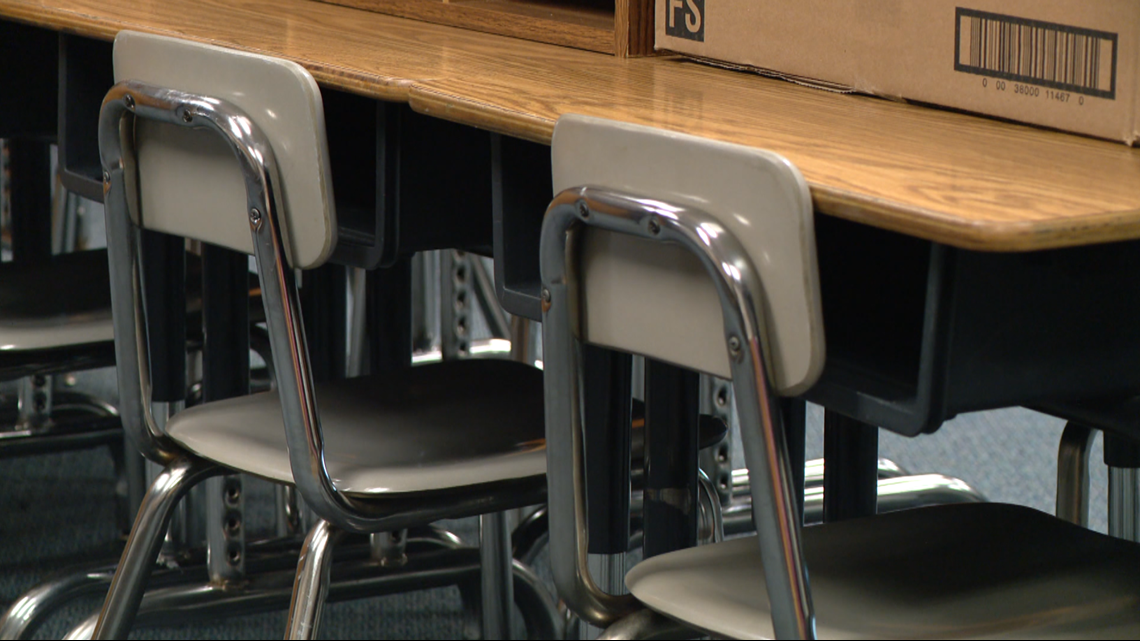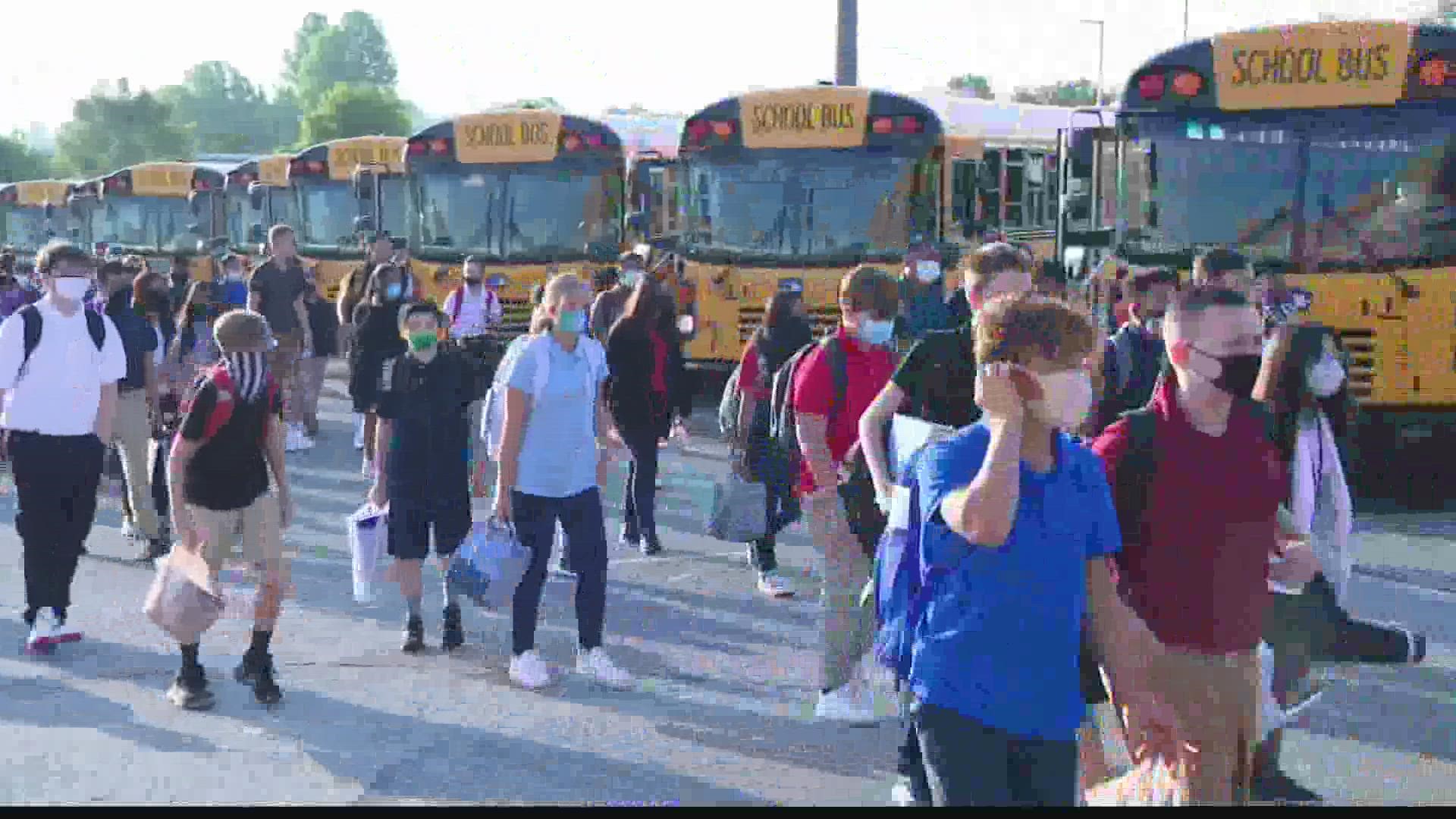INDIANAPOLIS — A pair of bills filed ahead of Indiana's 2022 legislative session would prohibit Indiana schools' ability to teach certain concepts relating to race and sex, while also rolling back schools' abilities to require vaccinations, mask mandates, or quarantines for asymptomatic students.
House Bill 1040 and Senate Bill 167 – filed in the statehouse as education matters bills – are pieces of legislation including language that would ban Indiana schools' ability to implement concepts most commonly equated with critical race theory.
Both bills mark the first time the state has moved to officially ban concepts related to critical race theory in schools.
The bill filed in the Senate, SB 167, prohibits K-12 schools from requiring a student or employee of the school corporation to "engage in training, orientation, or therapy that presents any form of racial or sex stereotyping or blame on the basis of sex, race, ethnicity, religion, color, national origin, or political affiliation."
While the language of the bill does not directly name it, the "blame" portion of SB 167 would likely prohibit schools from teaching concepts like white privilege or white fragility in schools.
SB 167 further states schools "may not include or promote certain concepts as part of a course of instruction or in a curriculum" or direct or otherwise compel a school employee or student to adhere to certain tenets relating to the individual's sex, race, ethnicity, religion, color, national origin, or political affiliation."
Critical race theory is a way of thinking about America’s history through the lens of racism.
Scholars developed it during the 1970s and 1980s in response to what they viewed as a lack of racial progress following the civil rights legislation of the 1960s.


It centers on the idea that racism is systemic in the nation's institutions and that they function to maintain the dominance of white people in society.
The architects of the theory argue that the United States was founded on the theft of land and labor, and that federal law has preserved the unequal treatment of people on the basis of race.
Proponents also believe race is culturally invented, not biological.
Kimberlé Crenshaw, executive director of the African American Policy Forum, a social justice think tank based in New York City, was one of the early proponents.
Initially, she says, it was “simply about telling a more complete story of who we are.”
However, through the decades the term has become conflated with concepts regarding how race and sex are taught in classrooms.
Nine states - Idaho, Oklahoma, Tennessee, Texas, Iowa, New Hampshire, South Carolina, Arizona and North Dakota - have already passed legislation banning CRT in classrooms.
Aside from Idaho and North Dakota, none of those bills explicitly mention CRT.
CRT is not currently required in Indiana classrooms.
SB 167 would also require school curriculums to go under a curriculum review committee, which would consist of parents, teachers and community members.
All educational material and curriculum must be posted online, and the school must then "add functionality" which would allow parents to opt in or out of certain educational items.
SB 167 also attempts to put limits on how schools provide counseling services to students, stating "before a school corporation or qualified school may provide or administer certain mental, social-emotional, or psychological services to a student, the school must provide the parent of the student or the student, if the student is an adult or an emancipated minor, with a written request for consent to provide or administer certain mental, social-emotional, or psychological services."
That language of SB 167 is related to social-emotional learning, a term which was adopted by schools as a way to respond to a burgeoning mental health crisis amid a global pandemic, and a concept Indiana AG Todd Rokita took aim at in his Parents' Bill of Rights.
The bill's authors are Scott Baldwin (R-District 20), Travis Holdman (R-District 19) and Jeff Raatz (R-District 27).
The bill filed in the House, HB 1040, mandates students must be taught that concepts like "socialism, Marxism, communism, totalitarianism, or similar political systems" are "incompatible with the concepts of freedom upon which the United States was founded", in grades six through 12.
HB 1040 enhances a parents' ability to opt out of face mask or vaccine requirements, stating "a parent of a student or an emancipated student who attends a school corporation or qualified school, may opt out of a face mask or face covering requirement" and that schools may not require vaccination against COVID-19 or another communicable disease "as a condition for employment, enrollment, attendance, or participation in a school corporation or qualified school or in a school extracurricular activity."
The state of Indiana does require vaccination against COVID-19, but does against other communicable diseases like Hepatitis B.
HB 1040 also indicates no agency can require an asymptomatic student to quarantine against COVID-19, or other communicable diseases.
HB 1040, like SB 167, expands upon mandating schools to post learning materials and educational activities online, requiring "not later than June 30, 2022, and not later than June 30 each year thereafter, each qualified school to post on the qualified school's Internet web site, in a manner that is accessible by the public, certain information regarding learning materials and educational activities."
It requires the department to develop and post on the department's Internet web site a model plan for presenting the learning material or educational activity information.
HB 1040 is authored by Rep. J.D. Prescott (R-District 33), Rep. Chris Jeter (R-District 88), Rep. Michelle Davis (R-District 85), Rep. Alan Morrison.
The Indiana General Assembly convenes Tuesday, Jan. 4.
You can read the full text of HB 1040 here, and the full text of SB 167 here.

